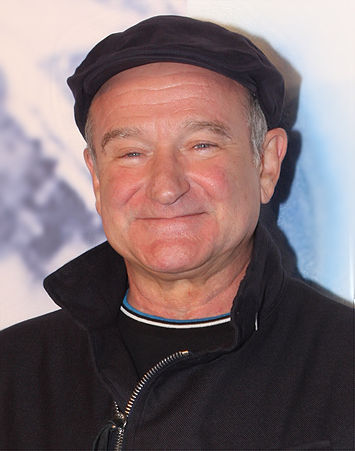
There are few figures in the annals of entertainment who captured the collective imagination quite like Robin Williams. A whirlwind of wit, an architect of characters, and a master of improvisation, he brought forth an effervescent joy that felt boundless, a manic energy that electrified every room and screen he graced. For millions around the globe, he was the embodiment of laughter, a comforting presence whose genius seemed to know no limits, delivering unforgettable performances that spanned the spectrum from uproarious comedy to profound drama. Yet, behind the public persona of the endlessly energetic funnyman, there lay a complex and deeply sensitive individual, a soul grappling with internal struggles far removed from the exuberant performances that defined his public life.
His journey, from the hallowed halls of Juilliard to the brightest lights of Hollywood, is a narrative woven with threads of extraordinary talent, relentless dedication, and an innate ability to connect with humanity on the deepest levels. Williams did not merely perform; he transformed, inhabiting each role, each character, each improvisational riff with a singular intensity that blurred the lines between actor and art. It was this very intensity, this profound wellspring of creativity, that made his eventual struggles with mental health and addiction all the more poignant, revealing the intricate dance between genius and vulnerability.
In the grand tapestry of his life, Robin Williams presented a paradox: a man who could conjure boundless joy for others while wrestling with a “black dog” of depression within. His story compels us to look beyond the surface, to understand the intricate interplay between the masks we wear and the battles we fight in silence. This article embarks on an in-depth exploration of the legend, charting his spectacular ascent, acknowledging the diverse roles that showcased his immense range, and gently, empathetically unveiling the beginnings of the challenges that would shadow his brilliance, ultimately offering invaluable lessons on compassion, understanding, and the enduring importance of mental well-being.
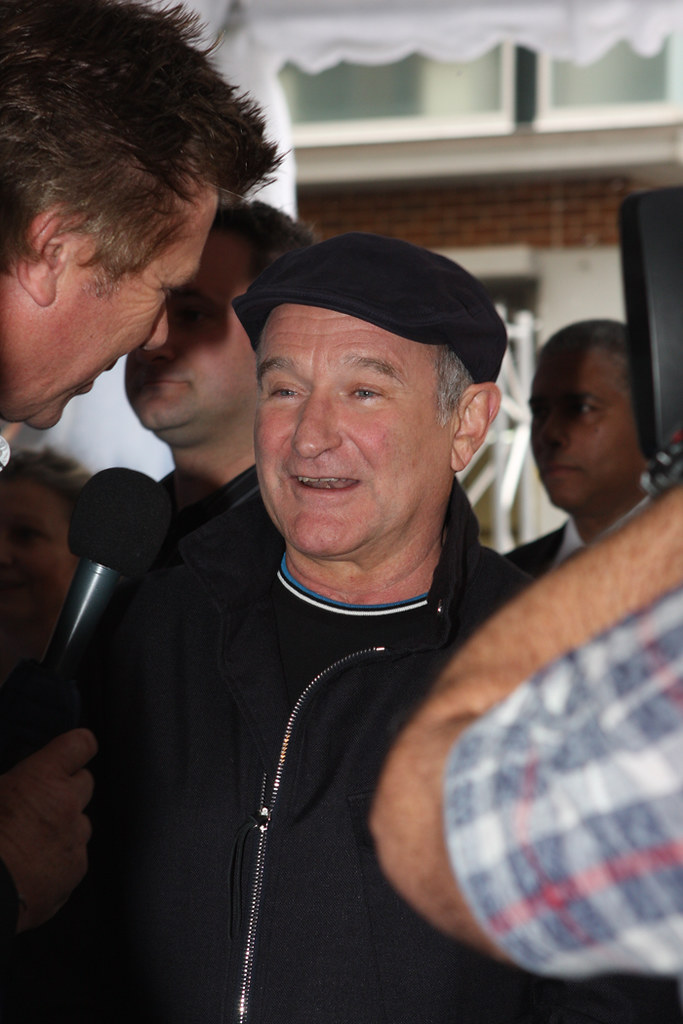
1. **The Comedic Dynamo: A Genius for Improvisation**Robin Williams’s comedic genius was, at its heart, a force of unparalleled improvisation. He possessed a rapid-fire wit and an almost supernatural ability to create characters and scenarios on the spot, transforming mundane observations into uproarious narratives. This spontaneous brilliance was the hallmark of his performances, captivating audiences with its unpredictability and sheer inventive power.
His stand-up acts were nothing short of a “tour de force,” a testament to his boundless energy and his capacity to riff on any topic. Williams could seamlessly transition between a myriad of voices, accents, and physical comedy, keeping audiences in stitches through sheer virtuosity. He was an artist who truly understood the pulse of his audience, adapting his material in real-time to maximize impact and engagement.
This improvisational mastery was not confined to the comedy club stage; it translated effortlessly into his film roles. In movies such as “Good Morning, Vietnam,” he was often given the freedom to improvise, allowing for performances that were not only fresh and authentic but also deeply human. This ability to infuse his characters with spontaneous life became a cornerstone of his appeal, leaving an indelible mark on cinematic history and inspiring countless aspiring performers.
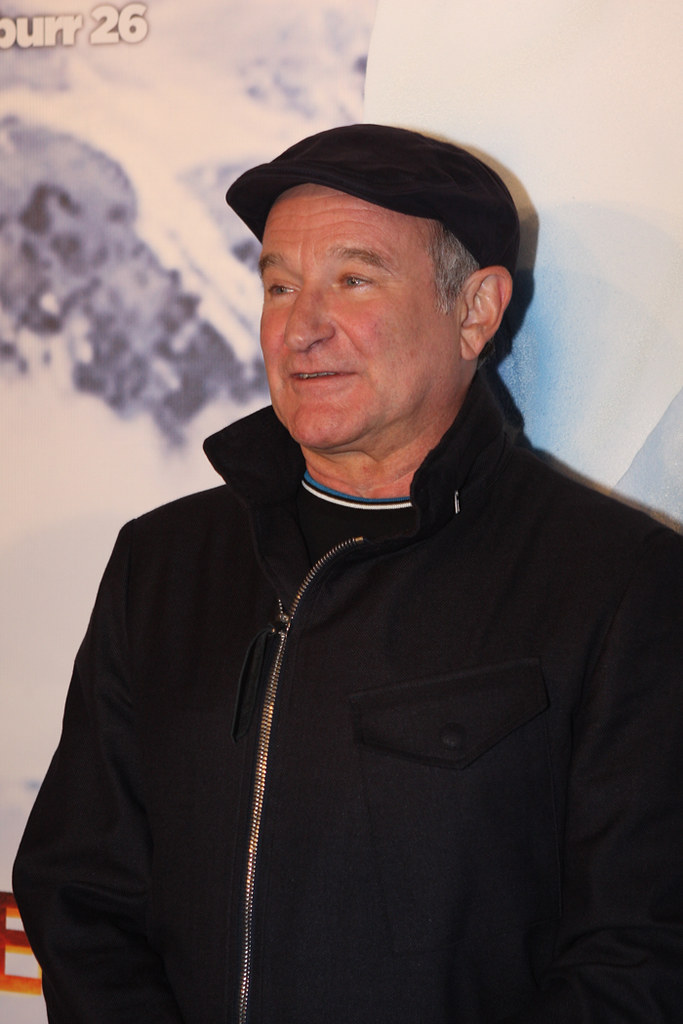
2. **Early Life and the Crucible of Juilliard**Born in Chicago in 1951, Robin Williams’s early life was, by his own account, a breeding ground for the laughter and imagination that would later define his iconic career. His childhood was reportedly rich with creative play, laying the groundwork for a mind that would eventually produce some of the most memorable characters and comedic routines of his generation.
In 1973, Williams embarked on a path that would profoundly shape his artistic development, enrolling in the prestigious Juilliard School in New York City. It was within these hallowed halls that his extraordinary talent began to truly flourish under the tutelage of esteemed figures like John Houseman, who quickly recognized his unique spark and immense potential.
This period at Juilliard was crucial for Williams, allowing him to hone his already impressive skills in acting and performance. His innate ability to effortlessly switch between diverse characters and accents impressed both his teachers and peers, firmly establishing the foundation for his future success in both comedy and serious acting, demonstrating a versatility that was evident even in his formative years.
Read more about: Ronny Whyte, Cabaret Singer and Pianist, Whose Elegance Endured in Manhattan’s Intimate Jazz Scene, Dies at 88
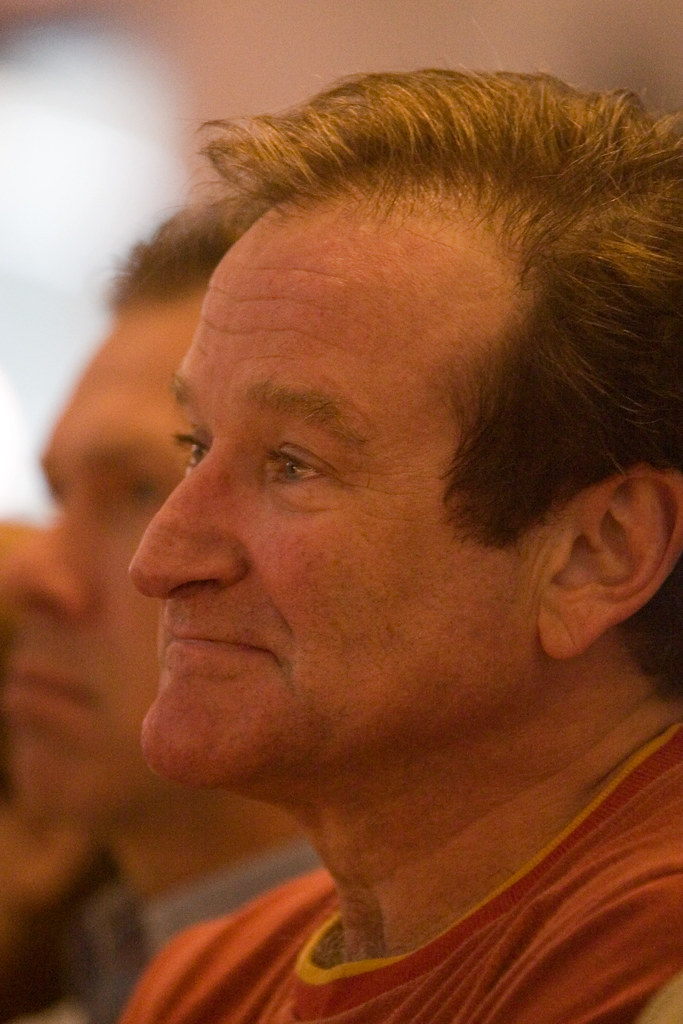
3. **”Mork & Mindy”: The Alien Who Captivated a Nation**After leaving Juilliard, Williams made the pivotal move to San Francisco, where he plunged into the vibrant world of stand-up comedy. It didn’t take long for his electrifying energy and rapid-fire delivery to earn him a formidable reputation, catching the discerning eye of television producers who recognized a star in the making.
The year 1978 marked his breakthrough with the sitcom “Mork & Mindy,” a role that would catapult him into national stardom as the lovable alien, Mork. This character was a perfect vehicle for Williams’s improvisational skills, allowing him to showcase his boundless creativity and unique comedic timing to a national audience every week.
“Mork & Mindy” not only established Robin Williams as a household name but also highlighted his distinctive blend of humor and heart. His portrayal of the quirky extraterrestrial endeared him to millions, proving that his unique comedic voice could transcend traditional sitcom formats and capture the affections of a wide demographic, cementing his place in popular culture.
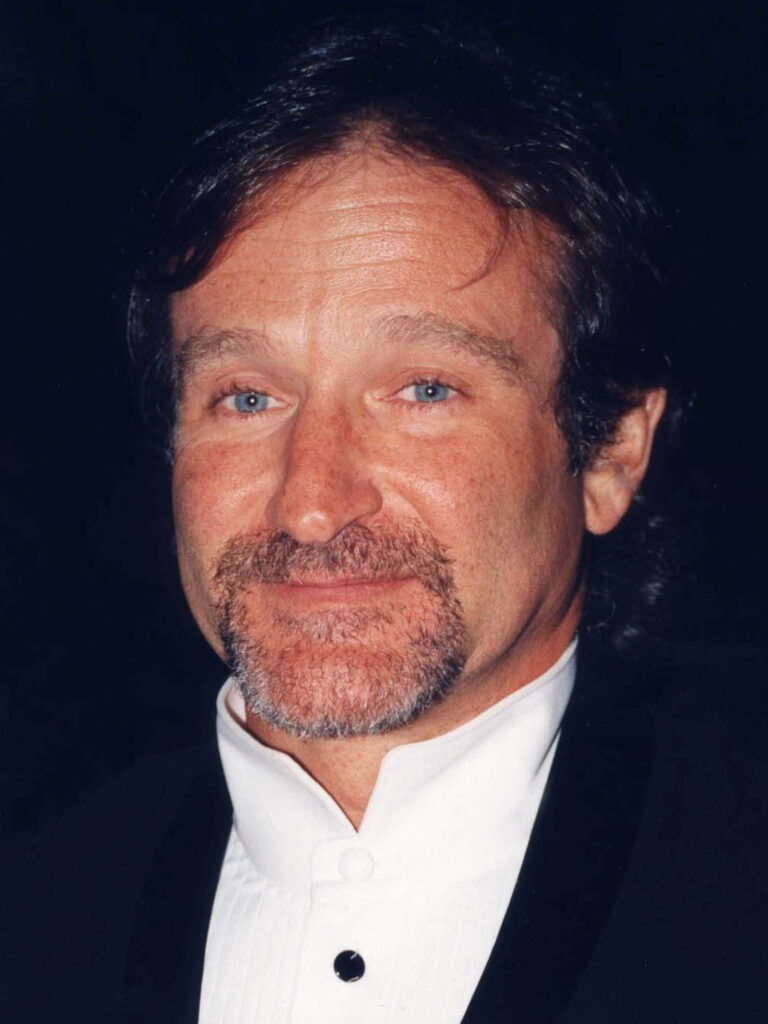
4. **From Stand-Up Stages to Cinematic Triumphs: Versatility Unveiled**Williams’s unparalleled versatility was consistently on display, not only through his iconic television roles but profoundly so in his legendary stand-up performances. Specials such as “An Evening with Robin Williams” in 1982 were showcases of his incredible range, where he could effortlessly leap from biting political satire to boisterous physical comedy, keeping audiences enthralled and in continuous laughter.
His mastery of the live stage demonstrated an agility and a depth that few comedians could match. He didn’t just tell jokes; he crafted entire worlds, populated by a parade of characters, all emanating from his singular mind. These performances were a powerful testament to his ability to connect with diverse audiences, transcending comedic niches with his universal appeal.
Beyond the stand-up arena, Williams continued to expand his repertoire, venturing into cinematic triumphs that further underscored his incredible acting range. Early film roles like “Good Morning, Vietnam” and “Dead Poets Society” allowed him to blend his comedic prowess with a burgeoning dramatic depth, proving he was far more than just a funnyman. He was an actor capable of eliciting profound emotional responses, establishing a formidable presence on the silver screen.

5. **Oscar-Winning Brilliance: The Depth of Dr. Sean Maguire**While Robin Williams had already captivated audiences with his comedic brilliance and versatile performances, it was his role as therapist Dr. Sean Maguire in “Good Will Hunting” that solidified his status as a truly profound dramatic actor. This deeply nuanced portrayal earned him an Academy Award for Best Supporting Actor, a recognition that resonated deeply within the industry and among his devoted fans.
His performance in “Good Will Hunting” allowed Williams to unveil a more subdued and introspective side of his acting abilities. The raw honesty and quiet wisdom he brought to Dr. Maguire provided a powerful counterpoint to his typically manic persona, demonstrating a profound capacity to convey complex human emotion with remarkable subtlety and gravitas.
Particularly praised were his scenes with Matt Damon, which crackled with an undeniable authenticity and emotional resonance. Williams’s ability to ground the film’s narrative with such moving and believable mentorship was a critical element in its success, confirming his exceptional talent extended far beyond humor, cementing his legacy as a respected dramatic actor alongside his comedic genius.
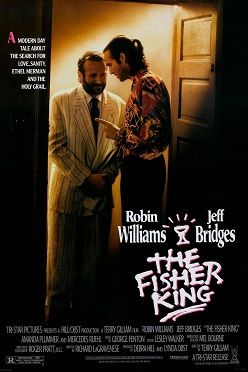
6. **Venturing into the Shadows: Master of Dramatic Transformation**While Williams was predominantly celebrated for his comedic roles, his willingness and exceptional ability to tackle deeply dramatic parts proved equally compelling. His transition into more serious cinema was not merely an exploration of new territory but a demonstration of an innate talent to embody characters far removed from his public image, often venturing into darker and more complex psychological landscapes.
In “The Fisher King,” Williams delivered a poignant and unforgettable performance as a homeless man, a role that earned him a Golden Globe and showcased his capacity for profound emotional vulnerability. This role allowed him to strip away the layers of comedic exuberance, revealing a raw, empathetic core that resonated powerfully with critics and audiences alike.
Further demonstrating his dramatic range, Williams took on chillingly dark roles such as the obsessive photo technician in “One Hour Photo” and the unsettling writer in “Insomnia.” These performances were stark departures from his beloved, family-friendly characters, illustrating his remarkable ability to inhabit complex and often troubled individuals with an intensity that was both unsettling and critically acclaimed, proving his mastery extended to the full spectrum of human experience.
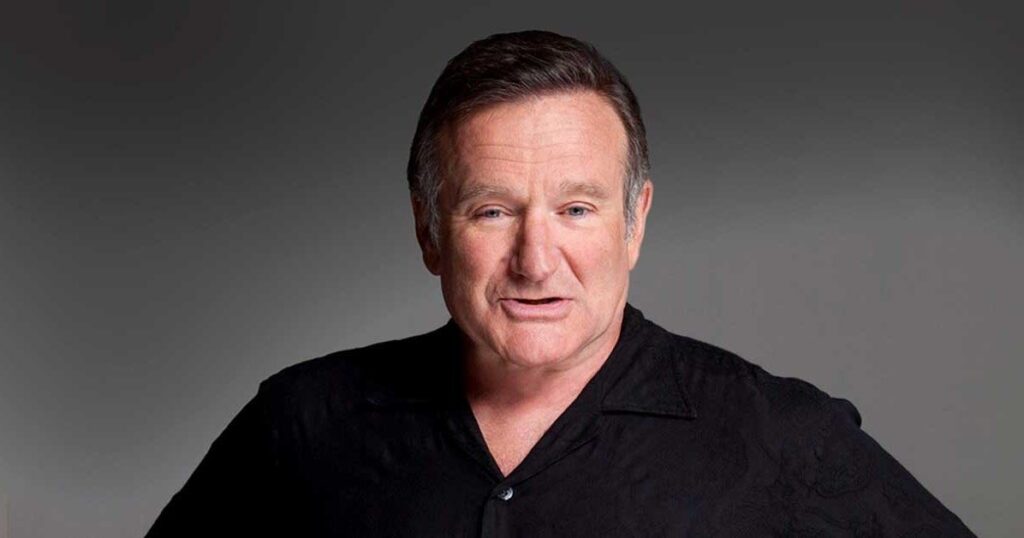
7. **The Invisible Battle: Lifelong Struggles with Depression and Anxiety**Beneath the effervescent public persona and the boundless energy that Robin Williams projected, lay a complex inner world, shadowed by profound struggles with mental health. Despite his capacity to ignite joy in millions, he privately battled severe depression and anxiety throughout much of his life, a stark contrast between his outward exuberance and inner turmoil.
Williams was remarkably candid about his experiences, often describing depression as a “black dog” that relentlessly followed him. His openness in interviews served not only as a personal confession but also as a powerful platform to raise awareness about the pervasive and often invisible nature of mental illness, challenging the stigma that frequently silences those who suffer.
These mental health challenges were further complicated by a misdiagnosis of Parkinson’s disease, which, tragically, masked the true nature of his declining mental state. It was only after his death that doctors discovered he had been suffering from Lewy body dementia, a progressive brain disorder that profoundly impacts thinking, memory, and mood. This hidden struggle, unknowingly exacerbating his anxiety, paranoia, and cognitive difficulties, underscored the immense personal battles he faced away from the public eye.
Read more about: A Life of Laughs and Silent Battles: Revisiting Robin Williams’ Enduring Legacy and the Unseen Struggles He Faced
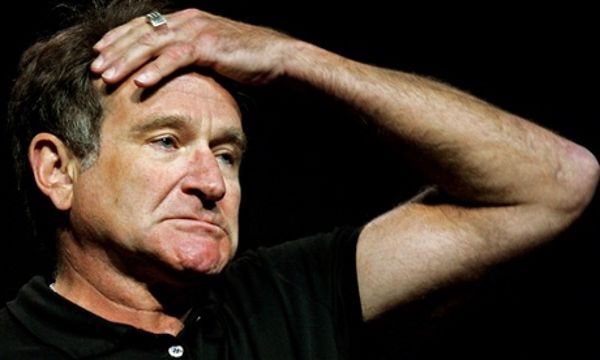
8. **The ‘Black Dog’: Williams’ Openness About Depression**Beneath the layers of his dazzling comedic persona, a profound and persistent struggle with mental health quietly unfolded throughout Robin Williams’s life. Despite his extraordinary capacity to conjure laughter and joy for millions, he privately grappled with severe depression and anxiety, a stark and often heartbreaking contrast between the public’s perception and his inner reality.
Williams, with a remarkable degree of candor, spoke openly about his experiences, often personifying his depression as a relentless “black dog” that shadowed his existence. This willingness to share such deeply personal struggles in interviews was not merely a confession, but a powerful act, utilizing his platform to dismantle the pervasive stigma surrounding mental illness and foster a much-needed dialogue.
His openness illuminated a crucial truth: that mental illness can afflict anyone, regardless of their outward success, fame, or the infectious exuberance they project. The raw honesty he brought to these conversations served as an invaluable reminder of the invisible battles many face, highlighting the urgent need for compassion, understanding, and robust support systems for those wrestling with internal turmoil.
Tragically, these underlying mental health challenges were further compounded by an initial misdiagnosis of Parkinson’s disease, which, unbeknownst to him or his doctors at the time, masked the true nature of his declining neurological state. This unfortunate turn of events added another layer of complexity to his already arduous fight, unknowingly exacerbating his profound struggles with anxiety, paranoia, and cognitive difficulties.
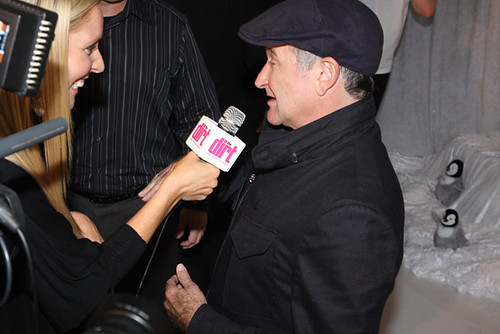
9. **The Shadow of Addiction: A Lifelong Battle**Robin Williams’s journey was also indelibly marked by a persistent battle with substance abuse, a shadow that often lurked behind the brilliance of his performances. His struggles with cocaine addiction began early in his career, during the fast-paced and tumultuous decades of the 1970s and 1980s, revealing a vulnerability that even his boundless energy couldn’t conceal.
A pivotal and sobering moment arrived in 1982 with the tragic death of his friend, fellow comedian John Belushi, from a drug overdose. This devastating event served as a stark catalyst for Williams, prompting him to confront his own demons and make a determined effort to quit cocaine and alcohol, embarking on a path toward sobriety that he would maintain for over two decades.
However, the insidious nature of addiction means recovery is rarely a straight line. In 2003, Williams experienced a relapse, returning to rehab for alcoholism, a courageous admission that demonstrated the ongoing vigilance required for sustained sobriety. He subsequently checked himself into rehab again in 2006, candidly acknowledging the renewed struggle with his long-term sobriety, particularly after filming in Alaska where isolation and easy access to alcohol provided a potent trigger.
This cycle of addiction and recovery, punctuated by moments of immense vulnerability and extraordinary strength, took an undeniable toll on both his personal life and professional endeavors. Yet, his willingness to be open about these setbacks, even incorporating his experiences into his comedy, helped to normalize the idea that relapse is often a part of the recovery process, proving that asking for help is a profound strength, not a weakness.
Read more about: The Heart-Wrenching Realities: A Deep Dive into the Tragic Life and Ongoing Struggles of Rosie O’Donnell’s Daughter, Chelsea
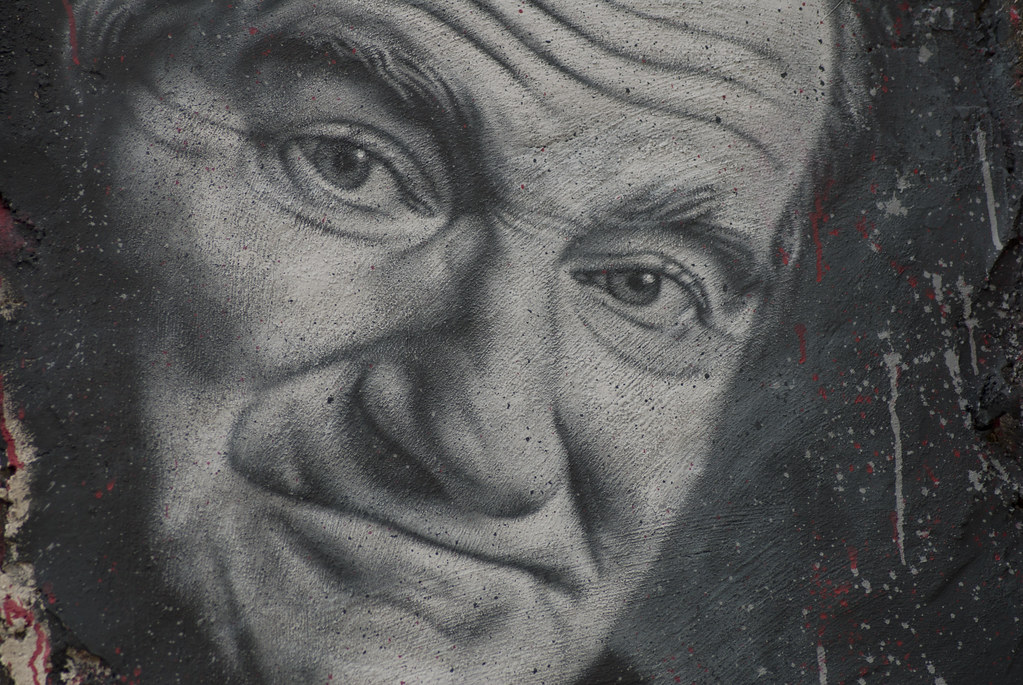
10. **Lewy Body Dementia: The Unseen Adversary**In the months leading up to his passing, Robin Williams was locked in a battle with an adversary far more complex and insidious than previously understood—a profound neurological disorder that remained largely undiagnosed until after his death. His initial diagnosis of Parkinson’s disease, tragically, obscured the true nature of his rapidly declining mental and physical health, creating a veil of confusion around his escalating struggles.
It was post-mortem that doctors unveiled the devastating truth: Williams had been suffering from Lewy Body Dementia (LBD), a progressive neurodegenerative disorder that profoundly impacts thinking, memory, movement, and mood. This condition, often mistaken for Alzheimer’s or Parkinson’s, is characterized by a cruel constellation of symptoms, including fluctuating mental status, debilitating cognitive decline, disorienting visual hallucinations, and significant motor impairments.
The insidious progression of LBD deeply exacerbated Williams’s existing mental health challenges, intensifying his anxiety to overwhelming levels, fostering debilitating paranoia, and introducing severe cognitive difficulties that stole his ability to reason and remember. The constant battle against these profound internal changes, often accompanied by vivid hallucinations, plunged him into a state of immense emotional distress, a torment that was largely invisible to the outside world.
His experience with LBD underscores the harrowing complexities of neurological conditions intersecting with mental health, and the critical importance of accurate diagnosis in guiding appropriate care and support. This unseen struggle, fundamentally impacting his very essence, served as a tragic reminder that his decline was not merely a battle with depression or addiction, but a fight against a relentless brain disorder.
Read more about: The Unvarnished Truth: Unraveling Robin Williams’ Final Months and the Battle with Lewy Body Dementia
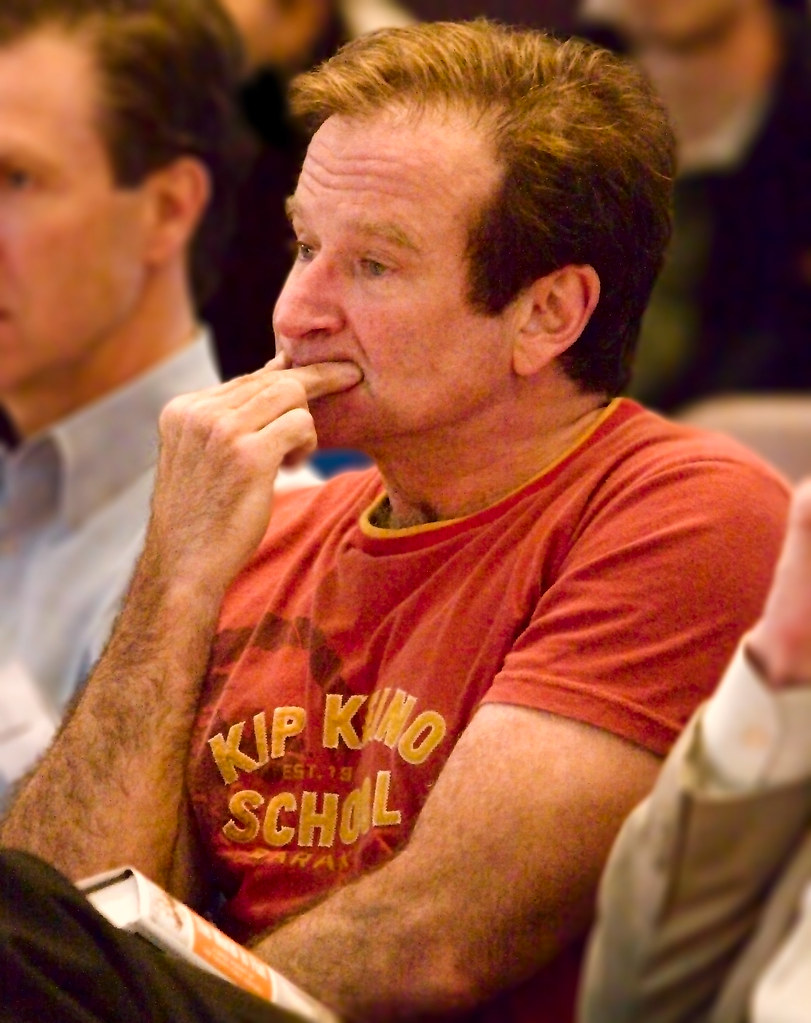
11. **The Intricate Dance of Joy and Pain: Comedy as Coping**Robin Williams embodied a compelling paradox: a public persona of boundless, often manic, energy and rapid-fire humor, juxtaposed with the profound private despair of depression. His comedic style, characterized by its frenetic pacing and stream-of-consciousness riffs, captivated audiences and seemed to reflect an inexhaustible wellspring of joy, yet beneath this exuberance lay a stark duality.
Psychologists often observe that humor can emerge as a powerful response to pain or discomfort, functioning as a sophisticated defense mechanism against difficult emotions. For comedians like Williams, the very act of crafting jokes provided a unique avenue to process and reframe his own painful experiences, transforming personal agony into universal laughter.
This ability to find humor in dark situations offered Williams a sense of control over his inner turmoil and fostered a profound connection with his audiences. Making others laugh became a coping skill, a way to channel his intense emotions into an art form that resonated deeply, allowing him to navigate the intricate landscape of his own struggles while simultaneously uplifting others.
Indeed, Williams’s comedy frequently dared to touch upon sensitive and serious topics, including his own battles with addiction and depression. His willingness to confront these taboo subjects, wrapping them in layers of wit and poignant observation, resonated deeply with audiences who recognized their own vulnerabilities, creating a shared understanding that humor could both express joy and serve as a shield against profound pain.
Read more about: Your Jaw Will DROP: 14 Celebs Who Are *Actually* Way Younger Than You Think!
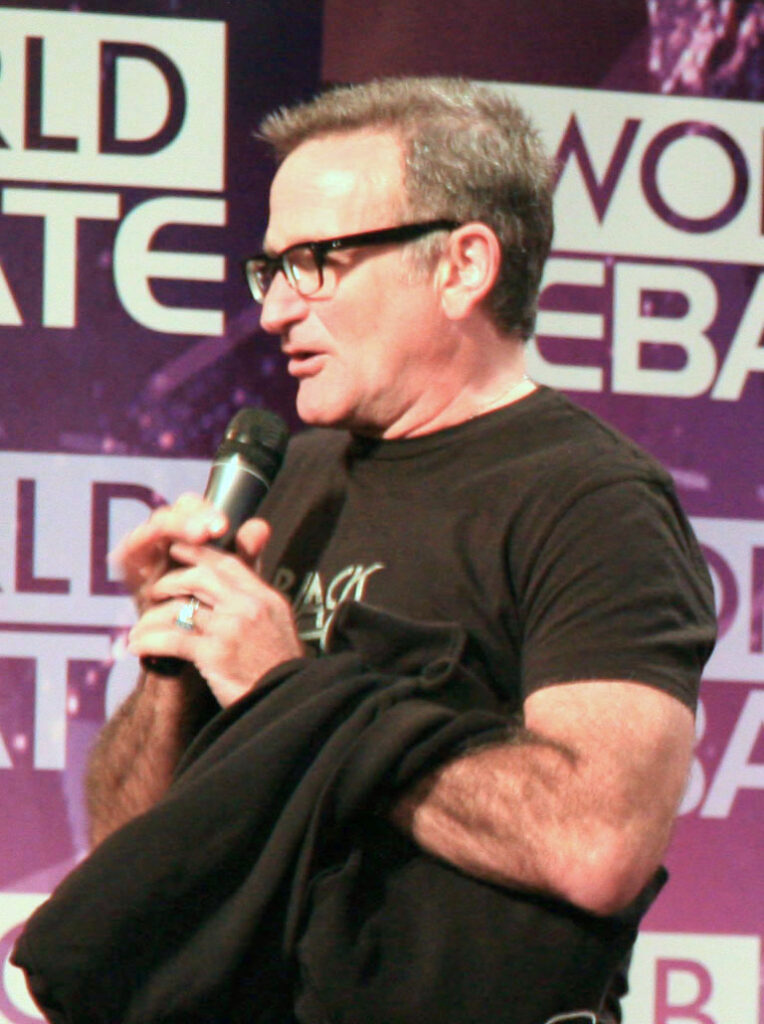
12. **Family, Relationships, and Support Systems**Throughout his life, Robin Williams’s personal relationships played a profoundly significant and multifaceted role, serving as both a source of immense strength and, at times, bearing the heavy strain of his internal battles. His family, in particular, stood as a crucial bedrock in the tumultuous landscape of his mental health struggles and addiction recovery efforts.
His marriage to Marsha Garces, his second wife, which spanned from 1989 to 2010, was instrumental in supporting him through his most challenging periods. She was a constant presence, offering unwavering support during his battles with addiction and mental health, embodying the deep commitment required to stand by someone facing such formidable adversaries.
Williams often spoke of his children as a potent source of strength and motivation, their love providing a compelling reason to maintain sobriety and fight against the inner demons that haunted him. Despite the profound challenges, he cherished these connections, and after his divorce from Garces, he found love and crucial support again with his third wife, Susan Schneider, who stood by him in his final, most difficult years.
His journey powerfully underscores the vital importance of staying connected to loved ones and seeking external support. The context highlights that isolation can be a major trigger, particularly for those in long-term recovery. Williams’s life is a poignant reminder that while personal battles are fiercely fought within, the embrace of a supportive community and loving family can offer invaluable anchors in the stormy seas of mental illness and addiction.
Read more about: Unveiling Leonardo da Vinci: A Renaissance Titan’s Enduring Legacy Across Art, Science, and Engineering
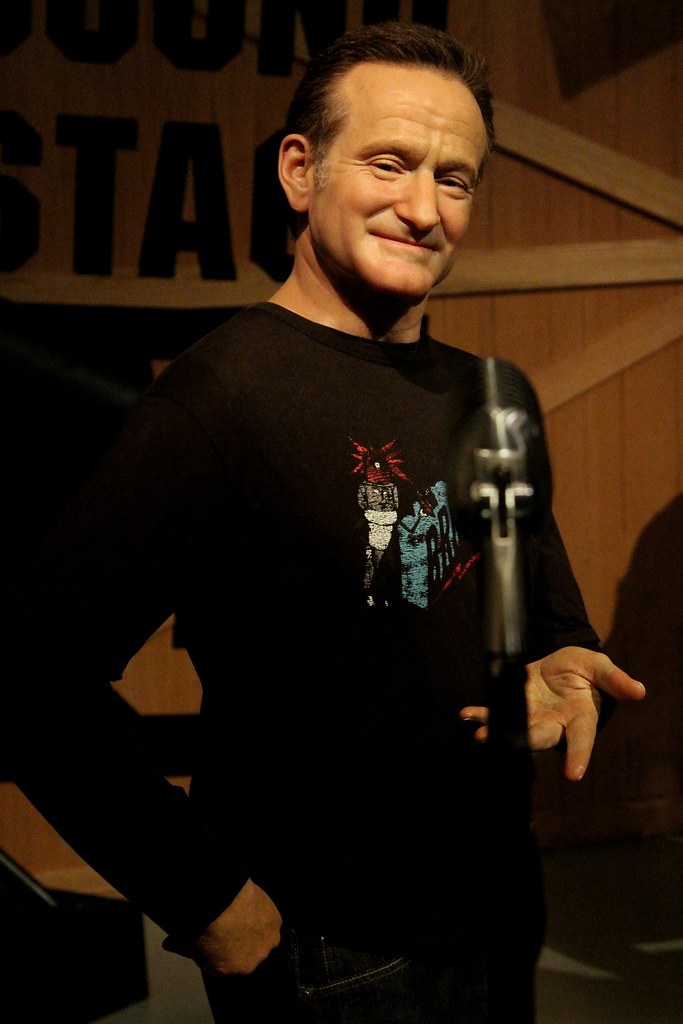
13. **A Legacy of Compassion and Philanthropy**Beyond the unparalleled comedic genius and dramatic prowess that defined his public career, Robin Williams was equally renowned for a profound and unwavering spirit of philanthropy and compassion. His generosity extended far beyond the stage and screen, touching countless lives through dedicated charitable work and myriad acts of kindness.
Williams co-founded Comic Relief USA, a remarkable initiative that leveraged the power of comedy to raise millions of dollars for homelessness charities, demonstrating his commitment to social causes close to his heart. His charismatic presence and boundless energy were channeled into creating meaningful change for the most vulnerable in society, transforming laughter into tangible aid.
His empathy reached across borders, as he frequently visited U.S. troops stationed overseas, bringing moments of much-needed laughter and comfort to soldiers far from home, a testament to his dedication to those who served. He also lent his unwavering support to vital organizations such as St. Jude Children’s Research Hospital and the Christopher & Dana Reeve Foundation, advocating for causes of profound importance.
Perhaps even more telling than his organized charity work were the countless stories that emerged after his death, recounting small, quiet acts of kindness: visiting sick children in hospitals, offering quiet help to those in need, and simply extending a genuine human connection. These personal gestures underscored a man whose immense heart matched the vastness of his talent, leaving an indelible mark of compassion on the world.
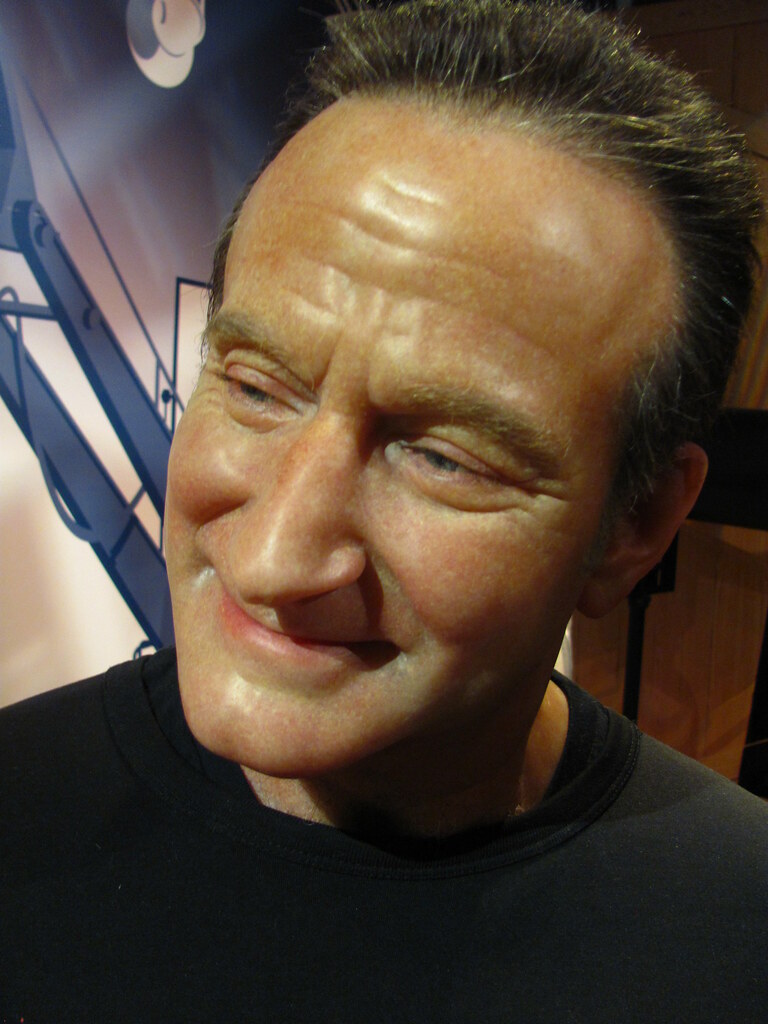
14. **The Enduring Impact: Mental Health Advocacy and Awareness**Robin Williams’s tragic death in 2014 sent shockwaves across the globe, but from that profound sorrow emerged a powerful and undeniable catalyst for crucial conversations about mental health, depression, and suicide. His story forced a societal reckoning, challenging the long-standing stigma surrounding mental illness and prompting widespread dialogue.
The revelation of his Lewy Body Dementia diagnosis, in particular, shed much-needed light on the intricate interplay between neurological conditions and mental health. This critical understanding helped to destigmatize his struggles, demonstrating the complex biological factors often at play and encouraging a more nuanced perspective on mental illness.
In the wake of his passing, there was a palpable increase in calls to mental health helplines, signaling a collective shift toward greater openness and a willingness to seek help. Celebrities and public figures, inspired by his candor, shared their own struggles, further normalizing discussions about mental well-being and fostering a more empathetic environment.
His life and legacy continue to be explored through poignant documentaries like “Robin’s Wish” (2020), which focused on his final days and the impact of LBD, and “Come Inside My Mind” (2018), offering an intimate look at his creative process and personal battles. Biographies like Dave Itzkoff’s “Robin” provided invaluable in-depth analyses, painting a comprehensive picture of his complexities.
Public tributes, from the renaming of a tunnel in San Francisco to the establishment of a scholarship in his name at Juilliard, alongside the outpouring of memories on social media, highlight his lasting impact. The Robin Williams Foundation continues his legacy, supporting mental health initiatives and arts education, ensuring that his life, and the lessons learned from his struggles, continue to inspire and advocate for a world where mental well-being is prioritized and openly discussed.
Read more about: Columbus Day 2025: Unpacking a Federal Holiday and the Myriad Observances of October
Robin Williams, the dazzling kaleidoscope of comedic genius and profound dramatic depth, left us with an inheritance far richer than mere entertainment. His life, a vibrant tapestry woven with threads of incandescent joy and unspoken pain, compels us to look beyond the surface, to understand that vulnerability often resides beneath the most brilliant of smiles. His journey serves as an enduring testament to the human spirit’s capacity for both immense creativity and profound suffering, urging us all to embrace empathy, champion open dialogue, and recognize that asking for help is not merely a brave step, but a vital act of self-preservation. In his memory, may we continue to foster a world where everyone, regardless of their public persona, feels seen, supported, and understood in their silent battles, ultimately allowing healing to flourish.



/https://static.texastribune.org/media/files/97fa9966c865809a944f6e9982c7b517/0217%20Torres%20Family%20EL%2007.JPG)